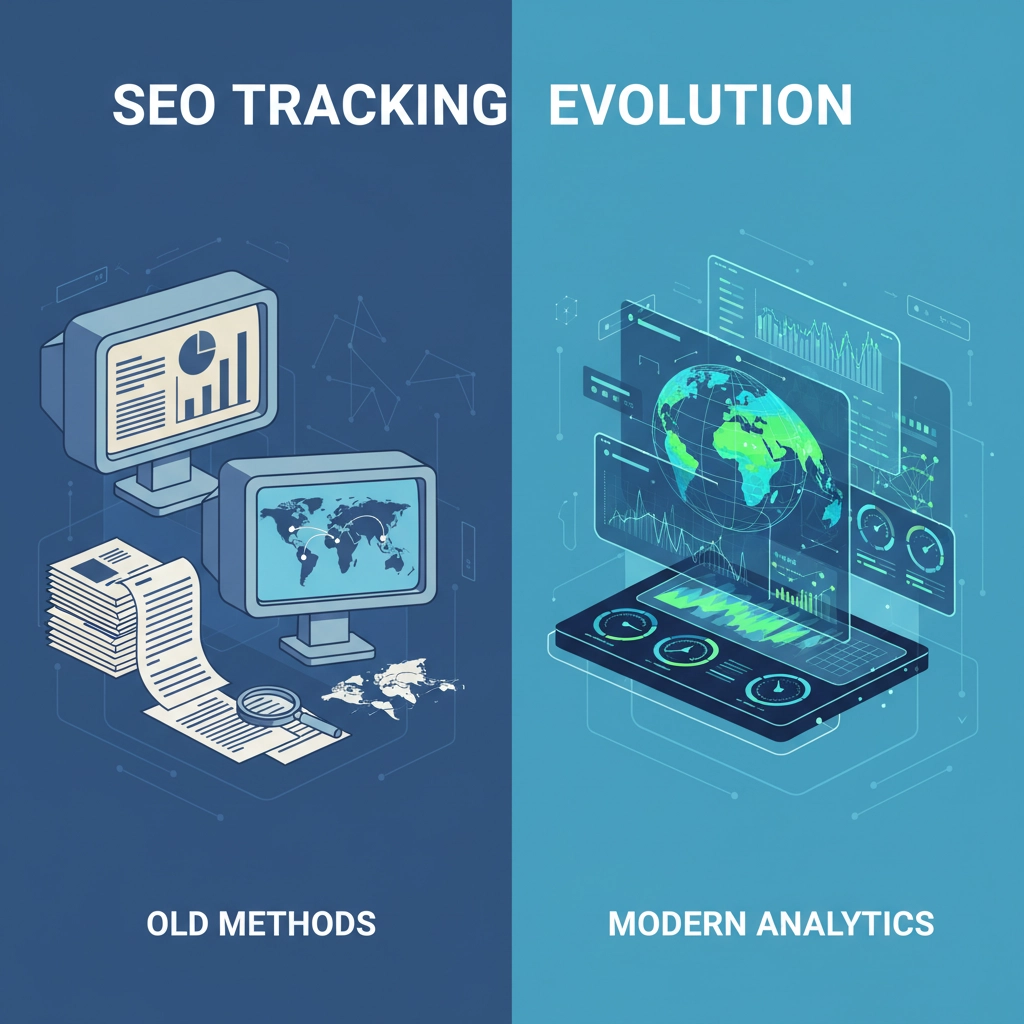A Silent Revolution Impacting the Entire SEO Ecosystem
The world of natural referencing is currently undergoing a period of profound change. Google’s recent modifications to its search data collection and processing system are completely redefining how SEO professionals access information on keyword positions. These changes, which occurred at the end of 2025, are significant and will have a lasting impact on how agencies like Digital Syndrom offer their reporting services.
Major Technical Changes Identified by Industry Leaders
Restrictions on Results Data Collection
According to the latest communications from Ubersuggest, a leading platform in SEO analysis, Google has considerably tightened its access conditions for search data. These restrictions do not only affect small players but impact the entire ecosystem of professional SEO tools. The automated collection of keyword positions, which was previously relatively smooth, now faces strict technical and regulatory limitations.
Google Search Central, Google’s official documentation for developers, confirms this direction. Recent Core Updates no longer just modify the ranking algorithm but also redefine the methods for accessing positioning information. This approach aims to preserve data integrity while controlling its use by third parties.

Significant Increase in Operational Costs
One of the most concrete impacts of these changes lies in the explosion of costs related to data collection. Visualsoft, a recognized expert in SEO tracking, emphasizes that accessing positioning information now requires more robust infrastructures and more complex access protocols. This technical complication directly translates into higher costs for SEO service providers.
Traditional tracking tools must invest massively to adapt to these new constraints. This economic reality inevitably impacts the value chain, from SEO software publishers to the agencies that use these tools for their clients.
Reduced Frequency and Reliability of Updates
The frequency of updates for positioning data has also been revised downwards. Where it was once possible to obtain daily updates, or even real-time updates for certain queries, the new limitations impose longer intervals. This change particularly affects the monitoring of dynamic SEO campaigns and the ability to react to positioning fluctuations.
Paradoxically, this reduction in frequency is accompanied by an improvement in the accuracy of the data provided. Google now prioritizes quality over quantity, offering more reliable but less frequent information.
The Complication of Position Tracking: A Major Technical Challenge
New Infrastructure Requirements
Tracking keyword positions today requires sharp technical skills and dedicated infrastructures. Google’s APIs have become more restrictive, requiring stronger authentication and strict usage quotas. This technical evolution requires agencies to specialize further or rely on reliable technology partners.
For Digital Syndrom, this complication represents a significant investment in terms of development and maintenance. Our technical team has had to adapt its processes to maintain the quality of service our clients expect, while respecting the new constraints imposed by Google.
Impact on Data Accuracy and Granularity
Despite these challenges, new collection methods offer increased accuracy. The data collected is more representative of the reality of search results, taking into account geographic, temporal, and contextual variations. This qualitative improvement partially offsets the reduced frequency but requires new tools for analysis and interpretation.
The Evolution of Reporting Services at Digital Syndrom
A Strategic and Justified Decision
In response to these technological and economic changes, Digital Syndrom has decided to evolve its keyword ranking reporting service. Starting December 1, 2025, the Reporting service for keyword rankings will become a separate, paid, on-demand service.
This evolution does not signify a departure from our commitment to quality but rather a necessary adaptation to a more demanding technical environment. By separating this service, we can guarantee our clients an optimal level of accuracy and reliability while managing the operational costs associated with these new constraints.
The Benefits of This New Approach
Enhanced Personalization: Each client can now choose the frequency and granularity of reporting that best suits their needs and budget.
Data Quality: The paid approach allows us to invest in the best collection and analysis technologies, ensuring more reliable and actionable data.
Dedicated Expertise: Our teams can focus entirely on interpreting and maximizing the value of the collected data, providing real analytical added value.
Continuity and Quality: Our Commitments Remain
Maintaining SEO Excellence
It’s important to emphasize that this change only affects the position reporting service. Our core SEO services—technical audits, content optimization, keyword strategy, and link building—will maintain their usual standard of excellence and continue to be included in our standard packages.
The expertise Digital Syndrom has developed over the years remains fully dedicated to supporting our clients in their organic search strategy. Our results speak for themselves, as demonstrated by the projects in our portfolio.
Transparency and Support
This transition will be managed with transparent communication to all our current clients. We are committed to explaining the technical challenges, offering solutions tailored to each situation, and maintaining an open dialogue about SEO best practices.
For clients who wish to continue regular position tracking, we will offer flexible plans adapted to individual budgets and goals.
Toward a More Mature SEO Ecosystem
An Opportunity for a More Strategic Approach
While these changes present a challenge, they also open up new opportunities. By moving away from an obsessive focus on daily rankings, companies can concentrate on more meaningful metrics tied to their business performance: qualified traffic, conversions, and visibility on strategic queries.
This more mature approach to SEO aligns perfectly with Digital Syndrom’s philosophy: prioritizing concrete, measurable results over vanity metrics.
Adaptation and Innovation
The SEO ecosystem is evolving, and so are the tools and methodologies we use. These changes drive us to innovate, develop new approaches, and strengthen our expertise in the most impactful areas of organic search.
Conclusion: Anticipating to Better Support
The modifications Google is making to its data collection system mark a significant step in the evolution of professional SEO. At Digital Syndrom, we choose to anticipate these changes rather than simply react to them.
The update to our reporting service, effective December 1, 2025, is part of this proactive adaptation strategy. It allows us to maintain the quality of our services while adjusting to the new technical and economic realities of the industry.
Our clients can count on our continued commitment to supporting them in their organic search strategy with the same excellence that has defined Digital Syndrom since its inception. This change is not a break from the past, but rather a new stage in our ability to offer cutting-edge SEO services suited for the challenges of 2025 and beyond.






















